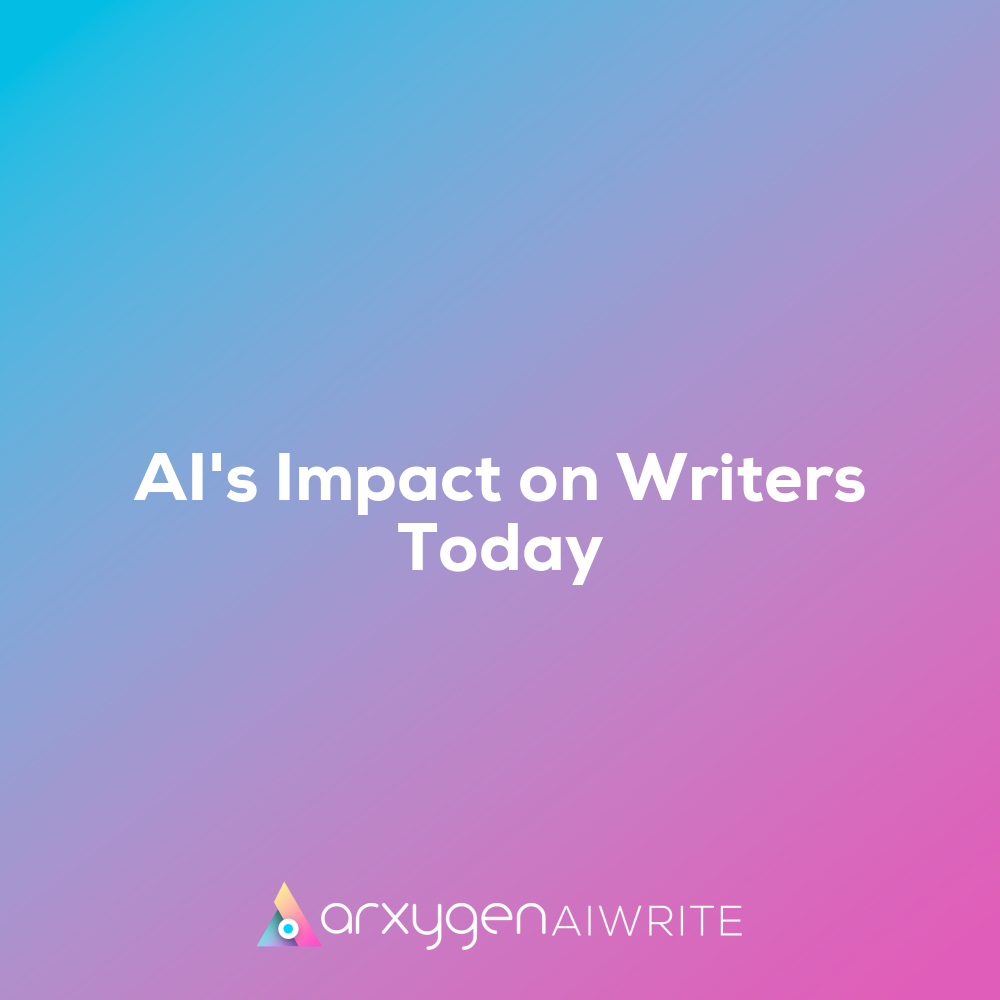The Impact of AI on Writing Careers
As businesses increasingly turn to AI-generated content, they’re discovering a cost-effective way to meet their demands. This shift not only reduces expenses but also speeds up the writing process, enabling teams to focus on strategy rather than execution. With sophisticated tools at their disposal, writers can now enhance creativity while AI handles mundane tasks, transforming the landscape of content creation. However, this evolution raises questions about the future role of traditional writers in a world dominated by algorithms.
How AI is Revolutionising Writing
- AI tools streamline research and idea generation.
- Content production becomes faster with automation.
- Writers gain more time for creative thinking.
- Businesses benefit from consistent quality and tone.
- AI assists in data-driven content strategies.
- Personalisation options enhance reader engagement.
- Collaboration between humans and AI fosters innovation.
This fusion of technology and creativity could redefine what it means to be a writer in today’s digital age.
The Unmatched Power of Human Emotion in Writing
In an age where artificial intelligence is rapidly advancing, the unique emotional connection that human writers forge with their audiences remains unparalleled. Readers crave stories that resonate on a personal level, capturing their hearts and minds in ways that algorithms simply can’t replicate. A poignant narrative or a heartfelt poem can evoke tears, laughter, and everything in between—an emotional rollercoaster crafted through the writer’s lived experiences and insights.
Consider how a well-written memoir can transport you into the author’s world, allowing you to feel their struggles and triumphs as if they were your own. AI may churn out text at lightning speed, but it lacks the depth of understanding that comes from genuine human experience. The subtle nuances of storytelling – like the use of irony, cultural references, or even humour – require an innate comprehension of life’s complexities that machines find challenging to emulate.
Moreover, writing is often about more than just conveying information; it’s about sharing a piece of oneself with the reader. The ability to weave personal anecdotes into a larger narrative creates a tapestry rich with authenticity and relatability. AI-generated content may be technically proficient, yet it often falls flat when it comes to evoking true empathy or connection.
Humans are inherently social beings who thrive on shared experiences and emotions. This intrinsic need for connection fuels our desire for stories that reflect our joys and sorrows. An AI may generate text designed to mimic human writing styles, but it cannot truly understand what it means to feel lost after a loved one’s passing or elated at a significant life achievement.
As we navigate this evolving landscape of technology and creativity, it’s essential to recognise that while AI can assist writers in various ways, it cannot replace the irreplaceable essence of human storytelling. In this battle between man and machine, the heart will always prevail over mere data-driven outputs.
Embracing AI: A Collaborative Future for Writers
In a world increasingly dominated by technology, traditional writers might feel threatened by the rise of artificial intelligence. However, instead of viewing AI as a rival, writers should consider it a valuable ally that can enhance their creative process. Imagine a seasoned novelist who, while struggling with writer’s block, utilises AI to generate fresh ideas and perspectives. This collaboration can lead to bursts of inspiration that propel their narrative forward, transforming frustration into productivity. By embracing AI as an innovative tool, authors can significantly boost their efficiency while maintaining their unique voice and style.
“By embracing AI as an innovative tool, authors can significantly boost their efficiency while maintaining their unique voice and style.”
A collaborative approach is not just beneficial; it’s essential for the evolution of storytelling. Rather than replacing traditional writers, AI can complement their skills, offering insights that enrich the writing experience. Picture a poet who uses AI to explore different poetic forms and styles, discovering new ways to express emotions they hadn’t previously considered. This synergy allows for the blending of human creativity with machine-generated suggestions, resulting in works that resonate on deeper levels. As we move forward, it’s crucial for writers to harness this technology wisely—transforming potential competition into a partnership that fosters creativity.
Ultimately, the future of writing lies in balance. By integrating AI into their toolkit, writers can navigate the complexities of modern storytelling while preserving their artistic integrity.

